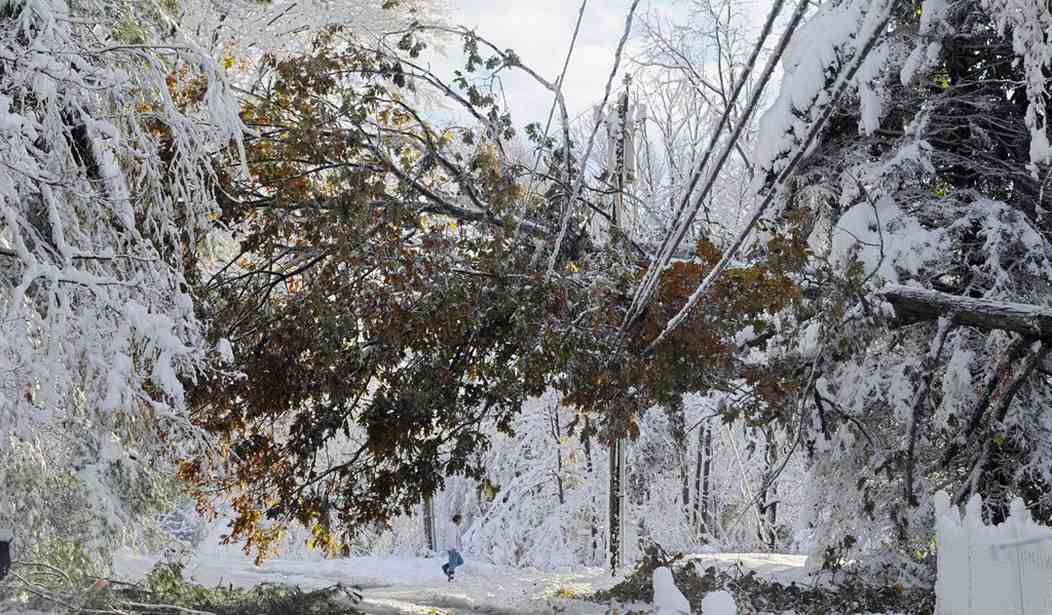“U.S. climate has already changed, study finds, citing heat and floods.” —New York Timesheadline, May 7, 2014
Is it really getting hotter and should we be worried? “Global warming” is being blamed for every conceivable natural disaster, whether it involves severe cold in the Northeast this past winter or flooding in Miami.The New York Times has been running front-page stories about the terrible consequences of global warming, citing the latest federal government study that temperatures could rise an average 10 degrees by the end of this century.
However, average temperatures have shown little change in the past two decades. Hurricanes and tornadoes are at record lows… blizzards, droughts and floods are below past extremes… and polar sea ice has started to increase again.

Is global warming a legitimate concern or a false alarm aimed to push through more anti-growth legislation and government regulations?
We had a big debate last year at FreedomFest about global warming with Michael Shermer, editor ofSkepticmagazine and a columnist forScientific American, and James Taylor, climate expert at the Heartland Institute. I was surprised that the editor ofSkepticmagazine wasn’t more skeptical of the biases among the global-warming crowd.
“Climate change from fossil fuel emissions increasingly appears to have been greatly overestimated and in any event is likely to be rendered irrelevant by advances in technology,” according to Walter Starck, policy analyst at Heartland.
Heartland’s Climate Change Conference
This summer, the Heartland Institute is holding its 9th International Conference on Climate Change right before FreedomFest. The July 7-9 climate change conference will take place at the Mandalay Bay Resort & Casino in Las Vegas. Learn from the top geo-climate specialists, economists and policy experts about the real costs of trying to stop global warming. Hear leaders speak out against global warming alarmism.
Recommended
FreedomFest is proud to be a co-sponsor of this event. To learn more and to sign up, call the Heartland Institute at 1-312-377-4000, or go to climateconference.heartland.org.
In case you missed it, I encourage you to read my e-letter column from last week about how “gross output” predicted the economy’s slowdown.
You Blew It! Play Ball — Faster, Please:
“This is one of the most critical issues facing baseball — why does the game take so long?”
– Red Sox executive
I grew up on baseball and still enjoying watching it on TV or going to a Yankees game in the Bronx. But today’s game is taxing my interest; it’s taking so long. The only reason I go to a game these days is to have a long conversation with a friend — not to watch the game.
My kids don’t even bother; they lost interest a long time ago. They are football and basketball fans.
I recently watched a classic Yankees baseball game on TV played in the late 1970s. Ron Guidry was the pitcher. The game flew by quickly, taking less than two hours. Guidry didn’t waste any time throwing his pitches, nor did the batters spend time stepping away from the plate and going through a routine of fixing their batting gloves and helmet, etc.
Today pitchers pace around the mound, while batters step out of the box excessively. Pitching changes occur so frequently that the average game now goes beyond three hours. Add in the decision this year to review close calls with instant replay cameras, and concern is mounting about the risk of four-hour ball games.
Umpires have tried to speed up the game by widening the strike zone, but that move has unintended consequences — a record number of strikeouts. During Guidry’s playing career in the 1970s, it took 2 ½ minutes to put a ball into play; now it’s every 3 ½ minutes.
No wonder young people are losing interest in “America’s pastime.” Unless Major League Baseball does something, such as subjecting slow players to fines, baseball will indeed be past its time.

























Join the conversation as a VIP Member